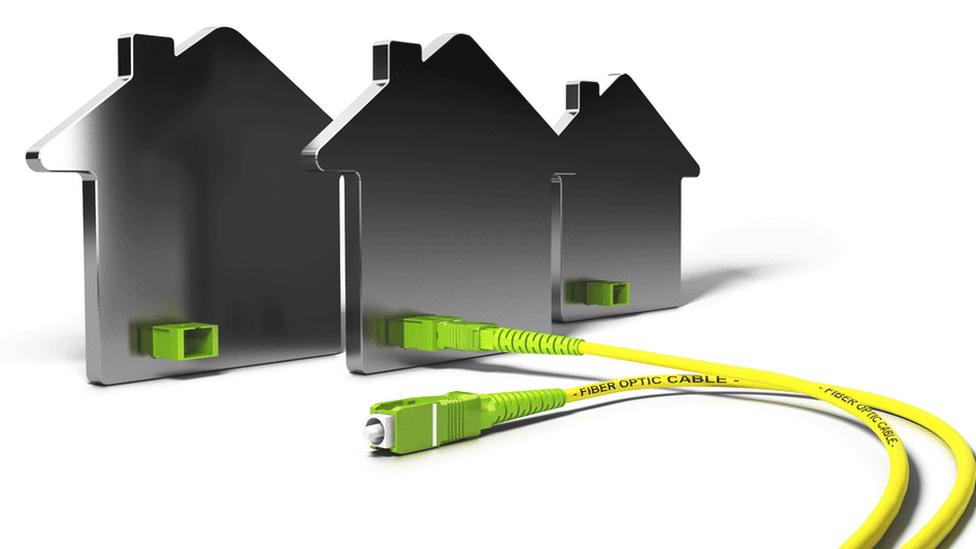Slow broadband needs switch-off date, say business leaders
- Published
- comments

A date "soon after 2025" should be set for copper network switch-off, says the IoD
The Institute of Directors (IoD) has called on the government to provide a firm date to switch off the UK's copper network in favour of faster fibre connections.
It suggested "as soon as possible" after 2025 should be the target.
The government has said that the UK should have full fibre nationwide by 2033 but has no date for a switch-off.
The IoD said faster fibre would bring a range of business benefits, including allowing more people to work from home.
"With an ever-changing world of work, business should be looking to enable employees to work flexibly. Unfortunately, firms are paying the price for the neglect of full fibre connectivity. We are jogging while the rest of the world is sprinting. We need a copper switch-off date of 2025 or soon after.
"Where you live should not determine your ability to work, or even start a business, with flexibility. The internet should be creating a more level playing-field for businesses regardless of location, but uneven broadband coverage means the opposite is true. For many firms, particularly in rural areas, poor connections lead to lost business and missed opportunities."
In its national telecoms strategy, published last month, the government suggested that the UK will have full fibre broadband coverage by 2033. It announced a range of measures to speed this up, including more investment in networks and making fibre connections standard in new homes.
Recent research in the global broadband league tables, behind 25 other European countries.
BT-owned Openreach is currently hiring thousands of engineers to help with the rollout of ultrafast fibre to 3 million more homes and businesses by 2020.
It has also pledged to drop the cost of wholesale fibre broadband to providers who can persuade more customers to upgrade.
Currently, 10 million households and businesses have superfast broadband (speeds of 24 megabits per second or above) although Ofcom estimates that 4 million more homes could make the upgrade for the same price or less.